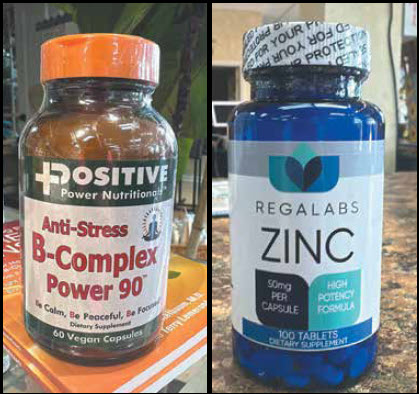In today’s world, nutritional supplementation is no longer optional—it is essential. While the human body was designed to thrive on whole, nutrient-rich foods, modern lifestyles, and agricultural practices have created an environment where achieving optimal nutrition through diet alone has become nearly impossible. Nutritional supplementation bridges this gap, empowering individuals to reclaim control over their health, performance, and longevity.
1. Soil Depletion and Nutrient Loss
A century ago, one could obtain the full spectrum of vitamins and minerals from fresh produce grown in nutrient-rich soil. Today, industrial agriculture prioritizes yield over nutrition. Repeated cropping, chemical fertilizers, and erosion have stripped the soil of vital trace minerals such as magnesium, selenium, and zinc—key elements for cellular function and immunity. Studies have shown that fruits and vegetables grown today contain 40–60% fewer nutrients than those grown 50 years ago. Even with a balanced diet, individuals cannot obtain sufficient nutrition without supplementation. To rebuild cellular health and maintain biochemical balance, supplementation is not merely beneficial—it is required.
2. Modern Diets and Lifestyle Stress
The average person consumes processed, convenience-based foods high in calories but low in nutrients. These foods are often stripped of vitamins, minerals, and enzymes essential for digestion, repair, and energy production. Combined with caffeine, alcohol, sugar, and environmental toxins, the modern diet taxes the body’s detoxification systems and accelerates nutrient depletion.
Chronic stress—mental, physical, and emotional—further compounds this issue. Stress consumes B vitamins, magnesium, and antioxidants at an accelerated rate. Without replenishment, individuals experience fatigue, poor sleep, inflammation, and weakened immunity. Supplementation replenishes what stress depletes, restoring equilibrium and enabling the body to function at its full potential.
3. Aging and Declining Absorption
As people age, nutrient absorption efficiency declines due to reduced stomach acid, enzyme production, and cellular transport mechanisms. Even those consuming a pristine diet may suffer deficiencies simply because their bodies can no longer assimilate nutrients effectively. Supplements, particularly those in bioavailable or pH-balanced forms, ensure that older adults receive the nutrients their cells require to maintain vitality, bone density, joint function, and hormonal balance. The right supplementation program can slow biological aging and extend healthspan—not just lifespan.
4. Environmental Toxins and Increased Demand
The human body today faces toxic exposure unprecedented in history—heavy metals, pesticides, microplastics, and electromagnetic stress. These elements disrupt cellular metabolism, damage DNA, and burden detoxification organs like the liver and kidneys. Nutrients such as glutathione, vitamin C, MSM, selenium, and chlorophyll are vital in neutralizing these toxins. Without supplementation, the body’s defenses are overwhelmed. Through targeted supplementation, one can fortify natural detox pathways and preserve organ health.
5. Athletic Performance and Recovery
For active individuals, nutrient demands are even higher. Exercise increases oxidative stress, electrolyte loss, and protein turnover. To build lean muscle, repair tissues, and prevent injury, the body requires elevated levels of amino acids, antioxidants, and minerals. Supplements like MSM, vitamin C, electrolytes, and adaptogenic herbs accelerate recovery, enhance oxygen utilization, and improve joint integrity. They allow athletes to train harder, recover faster, and perform better—naturally.
6. Genetic and Metabolic Differences
Each person’s genetic makeup influences how they metabolize nutrients. Some individuals require more folate, B12, or magnesium due to variations in methylation or enzyme activity. Nutritional supplementation allows for personalization—meeting each individual’s unique biochemical needs. It transforms health from a one-size-fits-all model into a precision-based system built on awareness and self-responsibility.
7. Prevention over Prescription
The modern medical model treats symptoms with drugs rather than addressing root causes. Nutritional supplementation shifts the paradigm back toward prevention and empowerment. When the body receives the raw materials it needs, it can repair, regenerate, and resist disease naturally. Supplementation is not about dependency—it is about sovereignty. It equips individuals with the tools to stay strong, independent, and free from the cycle of sickness and prescription drugs.
Building Health through Truth and Action
True health begins with truth. The truth is that modern living depletes, distracts, and diminishes the human body unless we act intentionally. Nutritional supplementation is the bridge between potential and performance, between survival and vitality. It is a declaration of self-governance—an act of responsibility that says, “I will provide my body with what it needs to thrive.”
In a world where weakness is normalized, supplementation empowers strength. It is the cornerstone of preventive health, cellular regeneration, and personal sovereignty. For those who seek to live long, serve others, and build a lasting legacy, supplementation is not luxury—it is law.
By: Roy Williams








